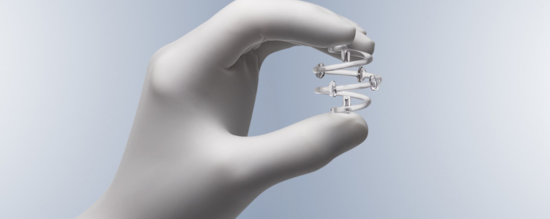IVC Filter
IVC Filter
IVC Filter
About This Case
The IVC Filter lawsuit is a significant legal battle that has taken center stage in the medical device industry, pitting patients against manufacturers Bard and Cook Medical. The crux of these lawsuits revolves around serious complications patients have experienced, including filter fracture, migration, embolization, and perforation - all alleged to be caused by these companies' IVC filters.
Amidst growing discontent and mounting punitive damages awarded by juries, the FDA has stepped in, issuing safety alerts about retrievable IVC filters, further underlining the concerns over device migration, high failure rates, and the critical need for their timely removal.
Statistics
IVC Filter Lawsuit Verdicts:
Legal proceedings involving IVC filters have resulted in substantial verdicts in favor of the plaintiffs. For instance, a $3.3 million verdict was upheld for a patient who had a fragment from a Meridian IVC filter lodged in her heart. This highlights the potential physical risks and legal consequences associated with the use of these devices.
Patient Follow-Up and Device Retrieval Success: Studies indicate that rigorous follow-up with patients who have undergone IVC filter implantation can significantly enhance the likelihood of successful device retrieval. This underscores the importance of thorough post-procedure patient care and continuous monitoring in the management of IVC filters.
Ongoing Legal Challenges for Manufacturers: Several manufacturers of IVC filters, including Bard, are currently facing legal challenges due to claims of design defects and failure to adequately warn about the risks associated with their products. These ongoing lawsuits underscore the need for manufacturers to ensure their products are safe, effective, and accompanied by comprehensive risk information.
IVC Filter Lawsuit Verdicts: Legal proceedings involving IVC filters have resulted in substantial verdicts in favor of the plaintiffs. For instance, a $3.3 million verdict was upheld for a patient who had a fragment from a Meridian IVC filter lodged in her heart. This highlights the potential physical risks and legal consequences associated with the use of these devices.
Patient Follow-Up and Device Retrieval Success: Studies indicate that rigorous follow-up with patients who have undergone IVC filter implantation can significantly enhance the likelihood of successful device retrieval. This underscores the importance of thorough post-procedure patient care and continuous monitoring in the management of IVC filters.
Ongoing Legal Challenges for Manufacturers:
Several manufacturers of IVC filters, including Bard, are currently facing legal challenges due to claims of design defects and failure to adequately warn about the risks associated with their products. These ongoing lawsuits underscore the need for manufacturers to ensure their products are safe, effective, and accompanied by comprehensive risk information.
IVC Filter Lawsuit Verdicts: Legal proceedings involving IVC filters have resulted in substantial verdicts in favor of the plaintiffs. For instance, a $3.3 million verdict was upheld for a patient who had a fragment from a Meridian IVC filter lodged in her heart. This highlights the potential physical risks and legal consequences associated with the use of these devices.
Patient Follow-Up and Device Retrieval Success:
Studies indicate that rigorous follow-up with patients who have undergone IVC filter implantation can significantly enhance the likelihood of successful device retrieval. This underscores the importance of thorough post-procedure patient care and continuous monitoring in the management of IVC filters.
Ongoing Legal Challenges for Manufacturers:
Several manufacturers of IVC filters, including Bard, are currently facing legal challenges due to claims of design defects and failure to adequately warn about the risks associated with their products. These ongoing lawsuits underscore the need for manufacturers to ensure their products are safe, effective, and accompanied by comprehensive risk information.
Trust A Firm With Over 10 Years Of Experience In Fighting For Others
Common
Questions
Common
Questions
Common
Questions
01
How do I Qualify?
Implanted device prior to February 2016, device migration, device breakage, implant failure leading to pregnancy issues or loss, abdominal pain, irregular menstruation, bleeding, and perforation of fallopian tubes, uterus, or colon.
02
What is an IVC Filter?
IVC filters, medical devices implanted to prevent pulmonary embolism, have raised concerns about companies neglecting to inform consumers of their dangers. Patients who have experienced complications like migration, fracture, or organ perforation may be eligible for a settlement.
03
Which IVC filters have been recalled?
The FDA has issued several recalls and warnings regarding IVC filters. Among these recalls, two were classified as Class I, indicating a significant likelihood of severe adverse health consequences or even death associated with the product's use. One of the Class I recalls pertained to Boston Scientific's Greenfield Vena Cava Filter, while the other was related to Cordis' OptEase Vena Cava Filter.
Additionally, there were four Class II recalls involving the aforementioned filters, along with B. Braun's VenaTech LP Vena Cava Filter System and Bard's Denali IVC Filter.
These actions by the FDA highlight the importance of addressing potential risks and ensuring the safety of individuals using IVC filters.
04
What occurred with these IVC filters?
An inferior vena cava (IVC) filter is a tiny metallic device implanted inside the inferior vena cava to intercept blood clots that migrate from the lower body to the heart and lungs. These clots, if left unchecked, can travel to the lungs and cause a potentially life-threatening condition called pulmonary embolism (PE). By capturing large clots, the filters effectively minimize the risk of blockage in the heart or lungs. Interventional radiologists use image guidance to carefully position these filters, which have been in use since 1979 and have been placed in more than 260,000 patients.
JJJ: IVC Filter Case Updates

We will get back to you as soon as possible.
Please try again later.
Get Started With a Free Consultation
Contact Us
OR

Jason J. Joy & Associates
Latest news





